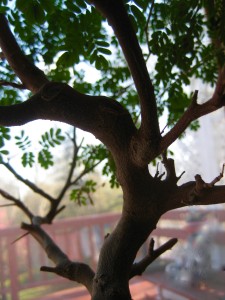
– Photo by Jan Ketchel
Father’s sperm sows Mother’s egg. Mother’s body fleshes out Father’s spirit. All human life issues from this primal happening. The basic archetypes of mother and father traverse the full breadth of human life, from creator to created to beloved.
Children first encounter these powerful building blocks of human life in their personal parents who generate, sustain, and protect their lives. Freud enshrined this primal nursery scene of dependence and love upon omnipotent parents as the core playing field of life, such was his conviction of the immutable powers and attraction of one’s family of origin.
Jung went on to demonstrate how the mother and father archetypes are projected beyond parents onto gods, the sun and the moon, kings and queens, presidents, authority figures, friends, lovers and spouses. As children grow, the numinous energy of the mother and father archetypes extend into encounters with people and objects in the world beyond the family crucible.
With the dawning of adolescence and the emergence of sexuality young people begin to experience desires and compulsions that generate fixations of falling in love. The object of these projections, the one wanted, is imbued with the numinous energy and need that harkens back to the primal archetypes of life: Mother and Father.
This numinous energy projected upon a desired other may be experienced as ecstatic bliss, terror, anxiety, paralysis or even aggression, the drive to conquer that which feels too powerful. Way beyond adolescence we may still tremble at making contact or feeling worthy enough to approach the one who embodies the god/goddess energy of these projections.
In ancient times rights of initiation to facilitate an individual’s ability to mature into an adult capable of making contact with a coveted other were commonplace. The Dionysian Mysteries of Ancient Greece and Rome were just one of the many cults serving this function.
In our modern rational world, we no longer value the transformative power nor the necessity of formal initiation rites to facilitate the maturity needed to take on the deeper challenges of meeting and fully connecting with a blessed other. The task of initiation in the modern world takes place in the inner sanctuary of the human psyche and body, often through the guidance and support of a knowledgeable therapist.
The call to initiation is frequently encountered in the anxiety, terror, longing, and excitement—all numinous energy—of a potential relationship. The stages of the initiation process are directed by the problems encountered in approaching a relationship.
Often, the first problem is the power of the projection itself. The desired other may be experienced as a god or goddess whose glow is so powerful that you feel unable to actually look directly into the solar rays experienced as emanating from this human form. Perhaps the heart pounds so hard it can be heard out loud; perhaps the vocal cords seize up, unable to make a sound. These are the presenting problems.
Perhaps this desired person appears in a dream with a loving, welcoming smile and you are drawn into sensuous embrace. Upon awakening you feel warmed, in a state of grace. Perhaps you spend the day immersed in the communion of the dream-memory, generating more and more fantasies of delight. Perhaps this secret romance goes on for weeks, a love affair with an inner god/goddess image in your private world of fantasy.
Suddenly, one night, this dream lover may appear in a new dream with another date. You are no longer desired! The impact: devastation and depression.
What is the lesson here from the god/goddess?
Perhaps you have been lured into the trap of feeling entitled to own this living figure whom you have enslaved in fantasy to attend to your sensual desires. Perhaps the god/goddess is teaching that this is infantile behavior, an adult expecting the one-sided attention appropriate only in the nursery.
Furthermore, the god/goddess may also be pointing out that nothing has really been achieved, as no real or substantial contact has been made with the human being so powerfully pined for.
Another dream may then issue forth that signals you to be a hero, to cross a raging river despite the odds. The prompting of such a dream might be challenging you to be your own hero, to shield your eyes from the overpowering projection of the god/goddess and actually make small talk with the real human person of interest, to go beyond your comfort zone and put it out there.
And so, the initiation proceeds with the waking task to approach the desired one, as well as the private task to cease indulging in infantile fantasy and face the reality that genuine contact with a human being requires getting to know them, in a down-to-earth way.
The various tasks of initiation are many sided and are determined by the specific needs of each individual unique personality. The temples of initiation are alive and active within our own inner beings. We encounter the gods and goddesses of those temples in many of our human relationships.
If we remain uninitiated we will experience ourselves as children, still needing the sustenance and protection of others. This returns us to the vicissitudes of Freud’s Oedipus complex, projected onto our adult relationships, which will continue to present us with all kinds of challenges.
Best to take up the journey of adulthood, launched successfully by an active engagement of ego with the vicissitudes of the primal archetypes that guide us all on the road to maturity.
That’s what it’s all about, folks!
Chuck
A blog by Chuck Ketchel, a man of knowledge; one who knows that he doesn’t know


